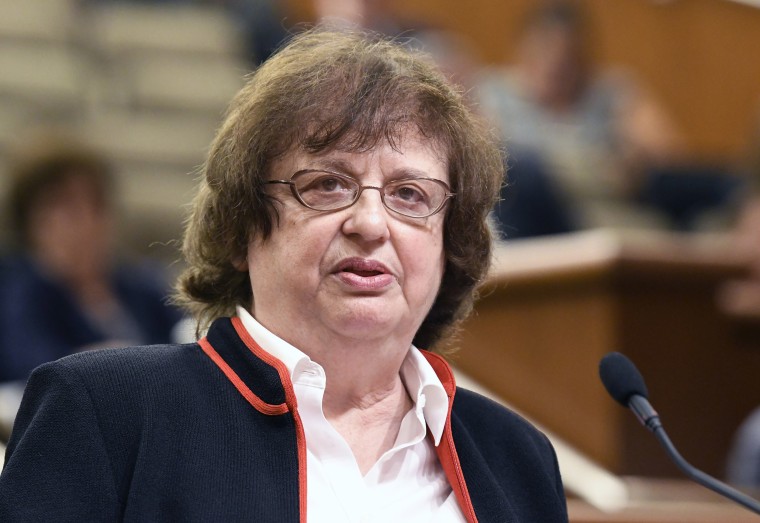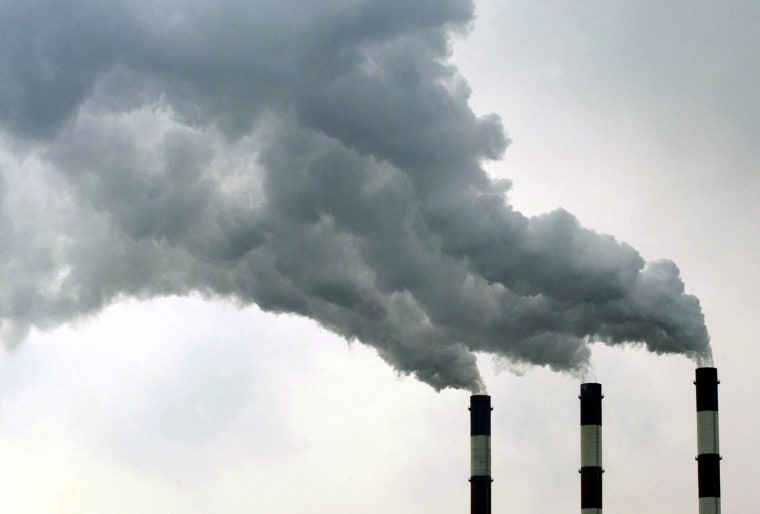When the state of New York went to court this week to accuse Exxon Mobil of misleading investors, it was just the latest demonstration by cities, counties, states and even a group of young Americans that they are fed up waiting for corporations, Congress or the White House to take action on global warming.
The lawsuit by New York Attorney General Barbara D. Underwood seeks to use the state’s tough securities laws to force the petroleum giant to publicly acknowledge the huge costs it will face as it grapples with human-caused climate change.
Like an earlier lawsuit against the U.S. government on behalf of 21 young U.S. citizens, the New York case will have to break legal ground to force increased transparency and action to rein in climate-warming greenhouse gases, experts said. Cities, counties and states are using another set of lawsuits in their own attempts to hold fossil fuel companies financially liable for global warming, but earlier such attempts failed — sending the governments searching for a new path to victory.

“As people who care about climate change become more frustrated at the failure of the administration and Congress to act, they increasingly turn to the courts for relief,” said Michael Gerrard, director of Columbia University’s Sabin Center for Climate Change Law. “And as climate change impacts get worse and worse and there is still no action, we could see a lot more of this.”
WHAT EXXON KNEW
The New York lawsuit came after a three-year state probe, which followed an investigation by InsideClimate News and other media outlets. The news organizations reported that Exxon ignored its own early climate research to help manufacture doubt about the scientific consensus on the dangerous warming of the Earth.
Underwood charges in the lawsuit that Exxon conducted a “longstanding fraudulent scheme” to mislead stockholders and analysts about “the company’s management of the risks posed to its business by climate change regulation.”
While the company acknowledged the risks internally, it didn’t properly alert the public, effectively keeping two sets of books--one on its own internal estimation of the high cost for the company to adapt to global warming, and the regulation that would come with it, and another that it presented to the public, the lawsuit alleges. The litigation demands unspecified damages and asks a court to order the oil and gas giant to tell the truth about its potential climate change liabilities.
Exxon tried and failed to block the New York investigation and a parallel inquiry by the state of Massachusetts. “The New York attorney general’s office doubled down on its tainted, meritless investigation,” the company said in a statement Wednesday. Exxon Mobil blamed the lawsuit on “closed-door lobbying by special interests, political opportunism and the attorney general’s inability to admit that a three-year investigation has uncovered no wrongdoing.”
New York’s lawsuit invokes the state’s Martin Act, a 1921 law that typically has been used by the state when the federal government appeared unable or unwilling to act against corporate fraud. New York has secured billions of dollars in fines from investment houses, banks and mutual funds.
Most of the prior cases focused on whether earnings and liabilities statements had been accurately reported, said John Coffee Jr., a Columbia Law School professor and securities law expert.
“This new case is a claim that the company knew the dangers from climate change and the liabilities it would incur and that those greater costs were not acknowledged or were underestimated publicly,” Coffee said. “That’s novel. I would describe this kind of case as unproven. We don’t know whether the courts will accept the materiality of that evidence.”
AN OBLIGATION TO PROTECT THE ENVIRONMENT
New York’s filing came just five days after Supreme Court Chief Justice John Roberts froze action in another novel case also centering on climate change. In what the plaintiffs have called a landmark case, the public interest group Our Children’s Trust sued the U.S. government on behalf of 21 plaintiffs, ages 11 to 22, to force a meaningful federal plan to respond to climate change.
The trial had been slated to begin Monday in a Portland, Oregon, courtroom, before the stay by Roberts required both sides to file arguments about whether the case should be allowed to continue.
The young people’s case relies on an ancient legal principle: the public trust doctrine, the concept that the government holds land, water and other assets on behalf of the people and is obligated to protect those assets.
The plaintiffs in the Our Children’s Trust case, known as Juliana v. the United States, are venturing into new territory by arguing that the government’s public trust responsibility should extend to the Earth’s atmosphere. They also contend that responsibility is embedded in the U.S. Constitution.
The argument could be a stretch, especially if the question heads to a Supreme Court with a conservative majority, according to one environmental law expert.
“They are trying to find that right and to ground it in the Constitution, and the Supreme Court has never held that there is any kind of right to environmental protection in the Constitution,” said Ann Carlson, director of the UCLA School of Law’s Emmett Institute on Climate Change and the Environment.
WHAT THE CASES COULD UNCOVER
There is plenty of other litigation in the climate change field, including more than a dozen lawsuits filed by an array of cities, counties and one state, Rhode Island, against coal, oil and gas companies. The cases charge that the fossil fuel companies caused extensive damage, including sea level rise and flooding in coastal communities, by pumping greenhouse gases into the atmosphere.
Several states tried similar lawsuits during President George W. Bush’s administration, taking utilities that burned fossil fuels to court. The cases all were dismissed and ultimately the Supreme Court unanimously ruled that the governments needed to file complaints with the Environmental Protection Agency, not the courts.
It’s unclear how the courts will respond to the new round of litigation from the cities. But Carlson, who is offering pro bono advice to some of the plaintiffs, said they might stand a better chance of success this time. She cited several reasons: The cases are being filed in state courts, where there might be fewer constitutional impediments than in federal court; they come at a time when science has more clearly proven the connection between global warming and extreme events like flooding, hurricanes and wildfires; and the cases target the companies that pull fossil fuels from the ground — rather than utilities that burn the fuels — and therefore could be argued to shoulder a greater responsibility for greenhouse gasses.
Given the track record of previous lawsuits, it’s far from certain that the new lawsuits will make it to trial. But Carlson noted that if any cases get as far as the discovery stage, that would mean internal communications by the fossil fuel companies could be revealed and executives questioned under oath.
“When the tobacco companies faced litigation and the discovery process we started to learn what they knew, and when they knew it, about the dangers of smoking,” Carlson said. “These cases could mark a sea change in what we know. And that could put the oil and gas companies in an uncomfortable position.”
